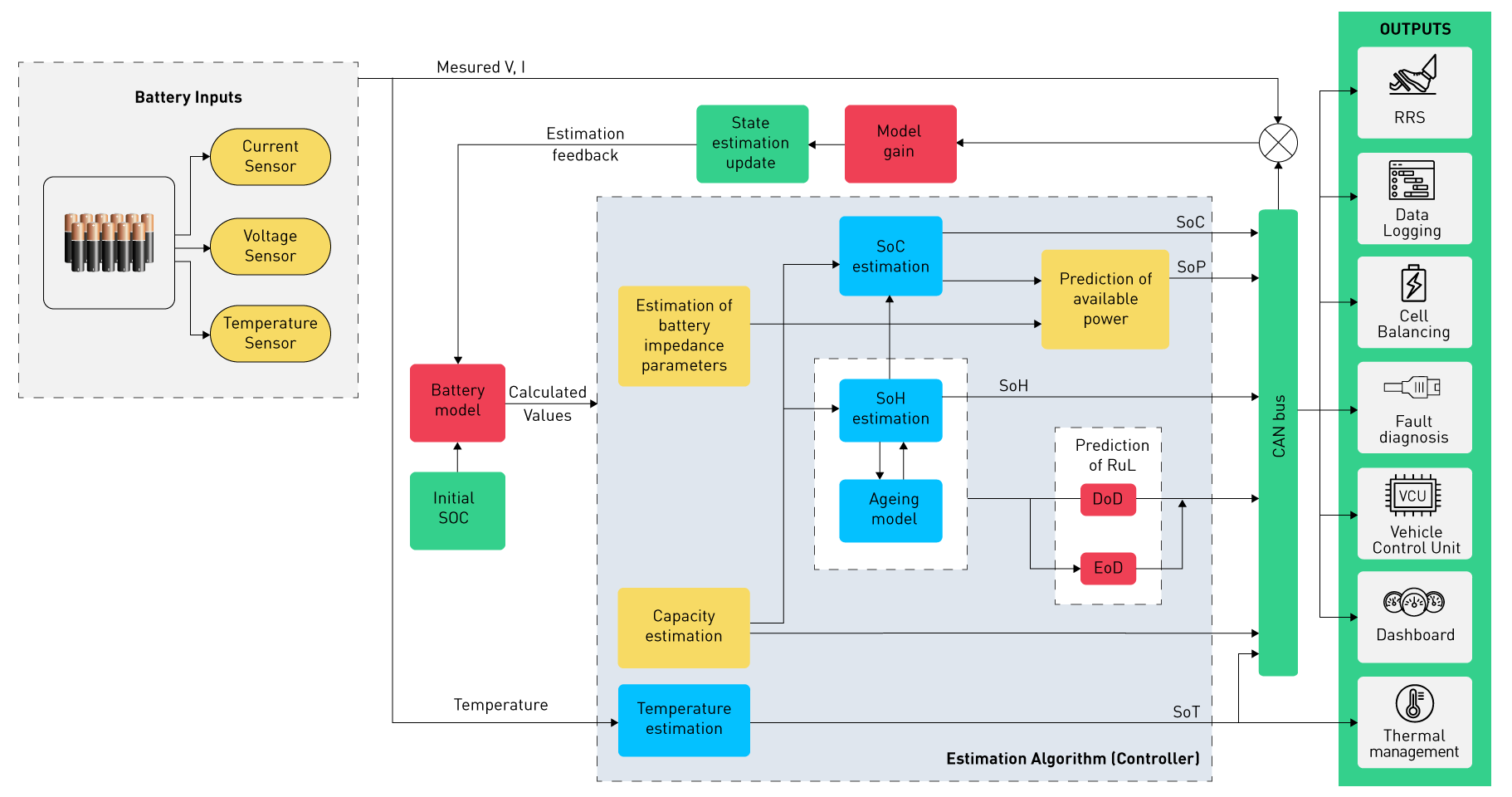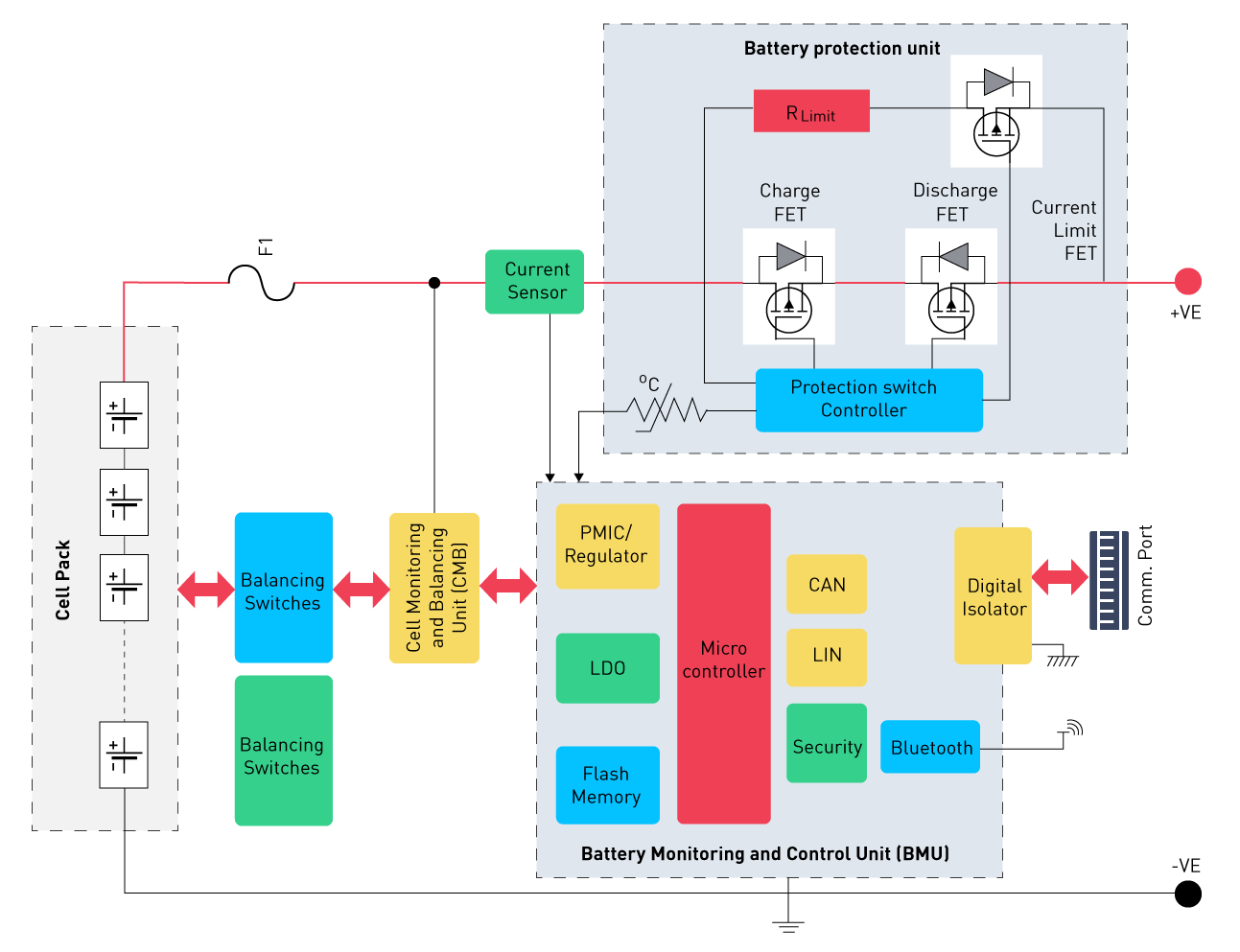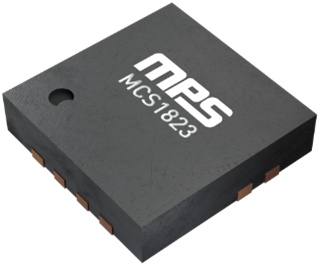Current Sensor ICs in Battery Management Systems: A Deep Dive into Their Crucial Role and Key Specifications

Get valuable resources straight to your inbox - sent out once per month
We value your privacy
Introduction
Current Sensors are the unsung heroes in the realm of Battery Management Systems (BMS). They play a pivotal role in ensuring the optimal performance, longevity, and safety of these systems. This article delves into the importance of Current Sensor ICs in BMS, their key roles, and the specifications to consider when choosing the right sensor for various applications.
One example of a current sensor IC is shown in Figure 1. The MCS1823 is a linear Hall-effect current sensor IC for AC or DC current sensing. The Hall array is differential to cancel out any stray magnetic field. A low-resistance (0.6 mΩ) primary conductor allows a large current to flow within close proximity to the integrated circuit containing high-accuracy Hall sensors. This current generates a magnetic field, which is sensed at two different points by the integrated Hall transducers. The magnetic field difference between these two points is then converted into a voltage proportional to the applied current. A spinning current technique is used for a low, stable offset.

Figure 1: Functional block diagram of the MCS1823 linear Hall-effect current sensor
The Critical Role of Current Sensor ICs in BMS
Ensuring Battery Health
The health of a battery is a primary concern in any BMS. Current Sensor ICs track the current flowing in and out of the battery, providing crucial data for determining the State of Charge (SoC) and State of Health (SoH) of the battery. This information is vital for maintaining the battery's health and longevity.
The schematic of the architecture presented in Figure 2 highlights the battery dynamics related to various state estimation parameters. This kind of model-based approach is widely adopted in EV applications.

Figure 2: Internal architecture of a battery state estimation module
Safeguarding Against Overcharging and Over-discharging
Safety is paramount when dealing with batteries. Overcharging or discharging a battery beyond its safe limits can lead to battery damage or even catastrophic failure. Current Sensor ICs accurately measure the current, enabling the BMS to take appropriate action when these limits are approached or exceeded, thereby preventing potential hazards.
BMS is typically equipped with an electronic switch that disconnects the battery from charger or load under critical conditions (such as battery overcharging and over-discharging) that can lead to dangerous reactions. A battery protection unit, depicted in Figure 3, prevents possible damages to the battery cells and the failure of the battery.

Figure 3: Battery protection unit
Optimizing Battery Performance
Current Sensor ICs contribute significantly to the performance optimization of a battery. By monitoring the current, the BMS can ensure that the battery operates within its optimal range, thereby extending the battery's lifespan and improving the efficiency of the device it powers.
Detecting Faults
Fault detection is another critical role played by Current Sensor ICs. They can detect faults in the battery or the circuit, such as a sudden change in the current that could indicate a short circuit. The BMS can then take appropriate action to prevent damage.
Enhancing Energy Efficiency
Accurate current measurement by Current Sensor ICs allows for more efficient energy usage. The BMS can adjust the charge/discharge rates based on the current measurements, ensuring the battery is used as efficiently as possible.
Facilitating Predictive Maintenance
The data collected by Current Sensor ICs can be used for predictive maintenance. By analyzing trends in the current over time, it's possible to predict when the battery may fail or require maintenance, allowing for proactive measures to be taken.
Selecting the Right Current Sensor IC
When it comes to choosing the right Current Sensor IC, several factors need to be considered. These include the sensor's accuracy, response time, common-mode voltage range, and power consumption. The sensor's package size and cost are also important considerations.
Monolithic Power Systems offers a range of high-quality Current Sensor ICs suitable for various applications. Our sensors are known for their high accuracy, isolation capabilities, and wide range of detectable currents. They are designed to measure both AC and DC currents, making them ideal for a variety of BMS applications.

Figure 4: MCS1823 current sensor by Monolithic Power Systems
Conclusion
Current Sensor ICs play a vital role in Battery Management Systems, contributing to safety, performance optimization, fault detection, energy efficiency, and predictive maintenance. As battery technology continues to evolve, the importance of these components will only increase. Whether it's in electric vehicles, renewable energy storage, or portable electronics, Current Sensor ICs will continue to be a critical part of ensuring safe and efficient battery operation.
_______________________
Did you find this interesting? Get valuable resources straight to your inbox - sent out once per month!
技术论坛
 Latest activity 10 months ago
Latest activity 10 months ago
 12 回复
12 回复
 Latest activity 2 years ago
Latest activity 2 years ago
 1 评论
1 评论
 Latest activity 8 months ago
Latest activity 8 months ago
 22 回复
22 回复





直接登录
创建新帐号